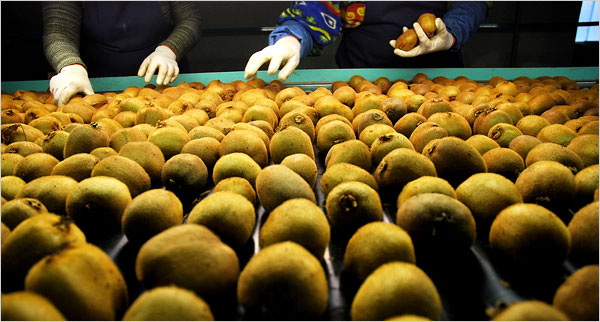A Quick How-To On Food Shipping

The first year of any business is commonly said to be the most challenging. Part of that is to do with creating a loyal and consistent client base, but equally it’s because that first year can be a very steep – and long – learning curve.
So if you are starting a food shipping business, and getting on board that upwards curve of business learning, it may be to your advantage to leap rather than crawl up by taking a look at this quick how-to of effective food shipping and preparation.
How you pack will depend on what you pack. For long-lasting consumables such as sealed and packaged goods, use common sense for weight distribution. Pack airtight. Rigidity will keep your box lighter, so choose several smaller boxes for tighter packing.
With perishables like fruits and vegetables keep similar items together, and again, stack them as tightly as possible. And do it slowly! One mistake many people make is dumping. Simply tossing items in the box till it’s full can cause bruising, leaving your otherwise fresh goods looking rotten. With fruits, you can insulate your box with silicon fruit moulds.

Fruits and vegetables, and farmers’-ready orders are best shipped in industrial strength double-layered cardboard boxes, which should then be stacked bottom-heavy onto pallets. Pallets will keep your produce upright and safe. When your goods have reached their destination a pallet jack or forklift carefully lifts from the pallet, and not from your produce.
If you are a small to medium e-commerce food supplier choose a trusted courier service, especially if frequently shipping to the same location or sending consumables overseas. Import laws and regulations are things you need to be smart about. A savvy partner can tell you what you need to know when shipping to EU countries. Here is a list of questions you might want to ask your courier when you first get started:
National Pallets is a good place to look for information on restrictions when shipping to European countries. As one of the largest pallet shipping networks they have an abundance of expertise and you can also see what your money buys you. For example, standard delivery service tends to take a day longer. You know what you’re shipping – can your items afford the wait? Either way, your product will arrive safe and sound. The best part is you and your client can track the delivery from day one to arrival.
Get the right help from the people who know how. Ship smart and in no time the seeds you planted will have grown into an e-commerce success.
